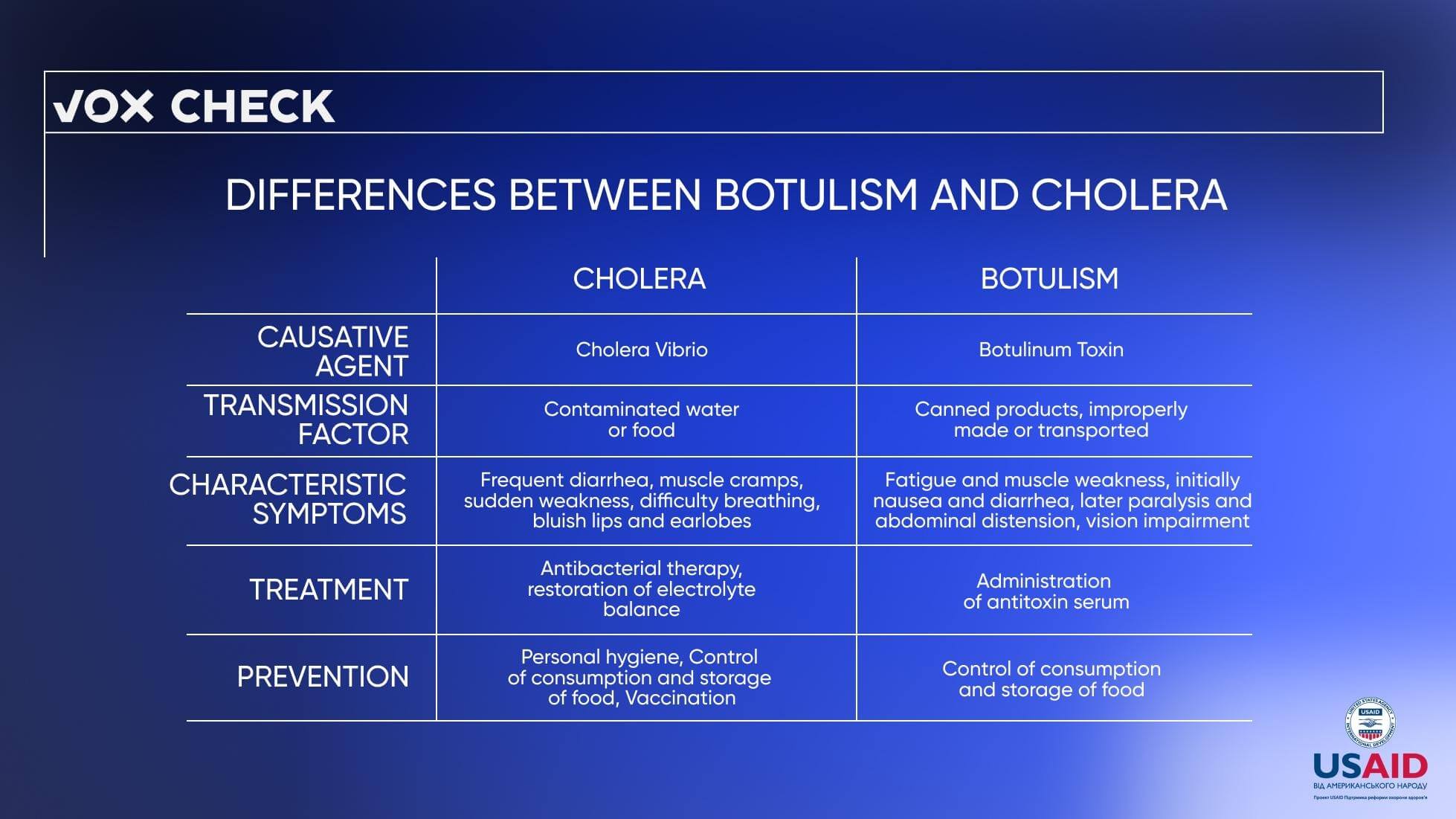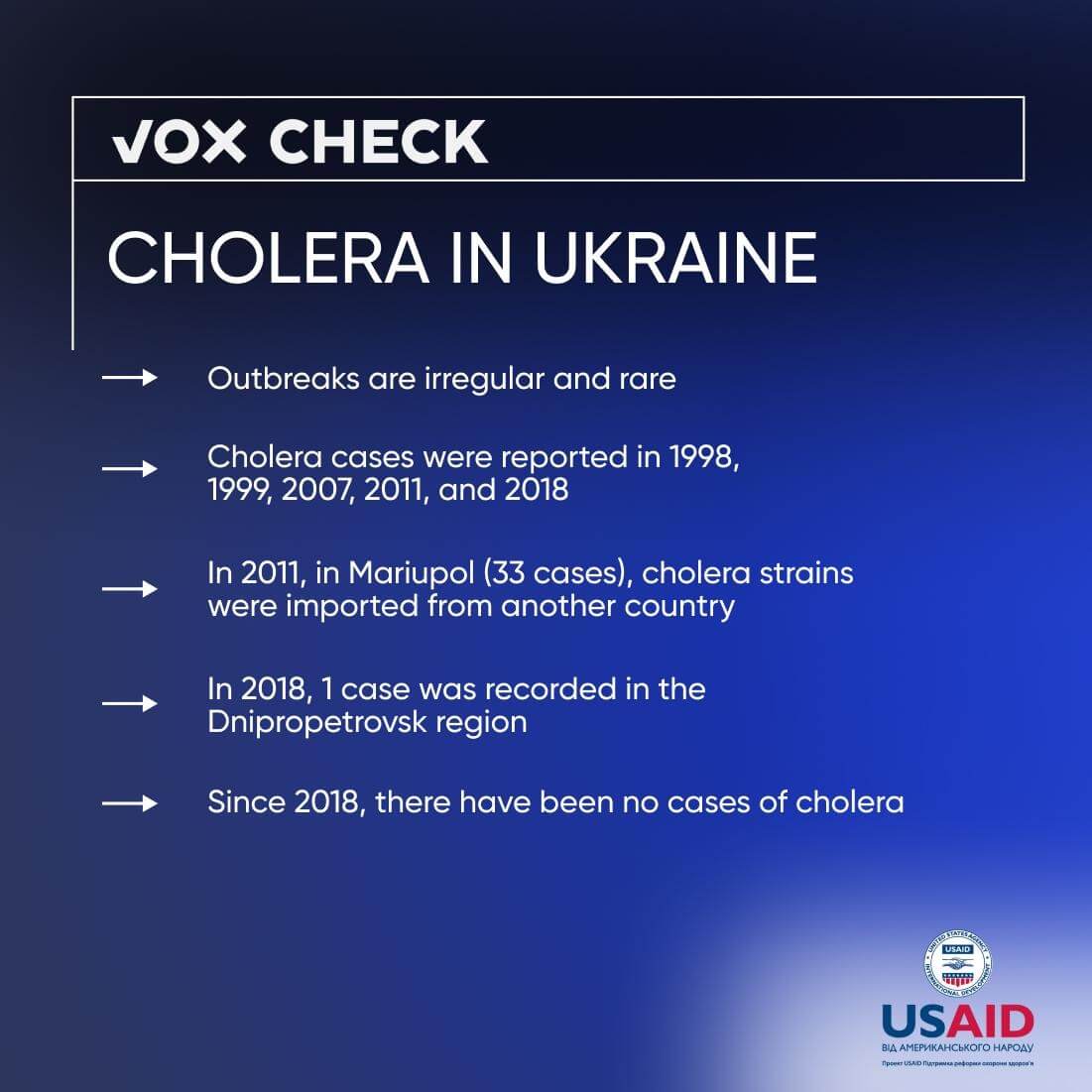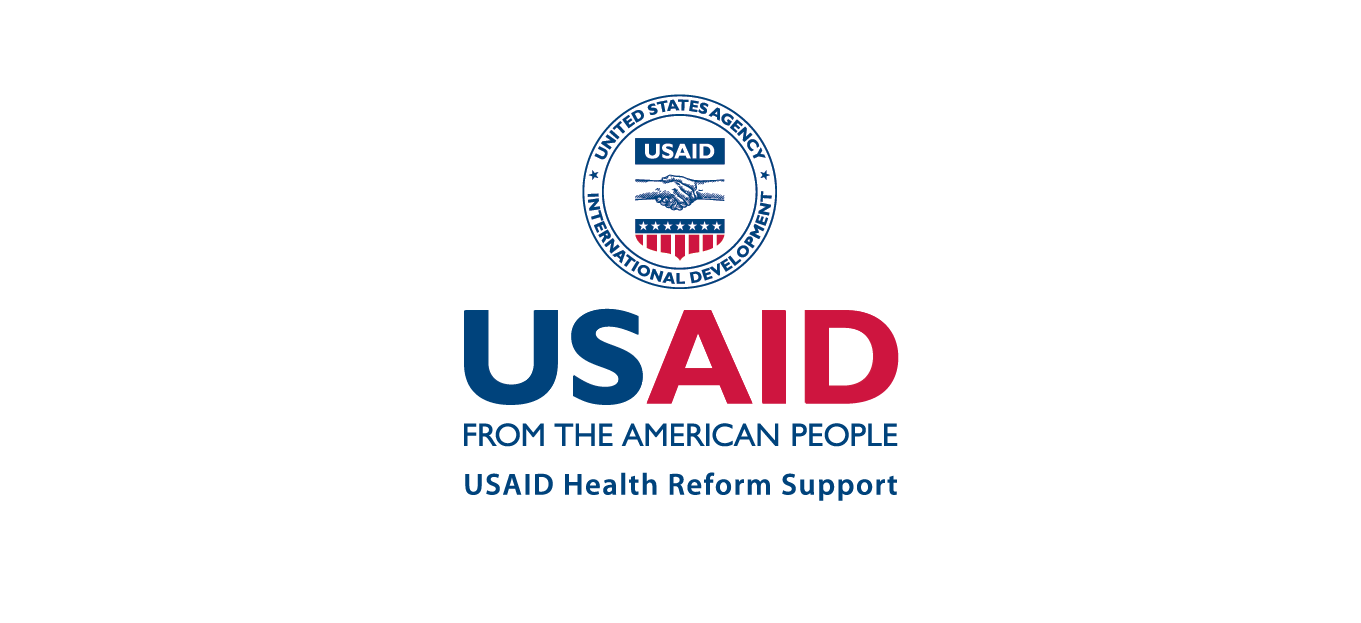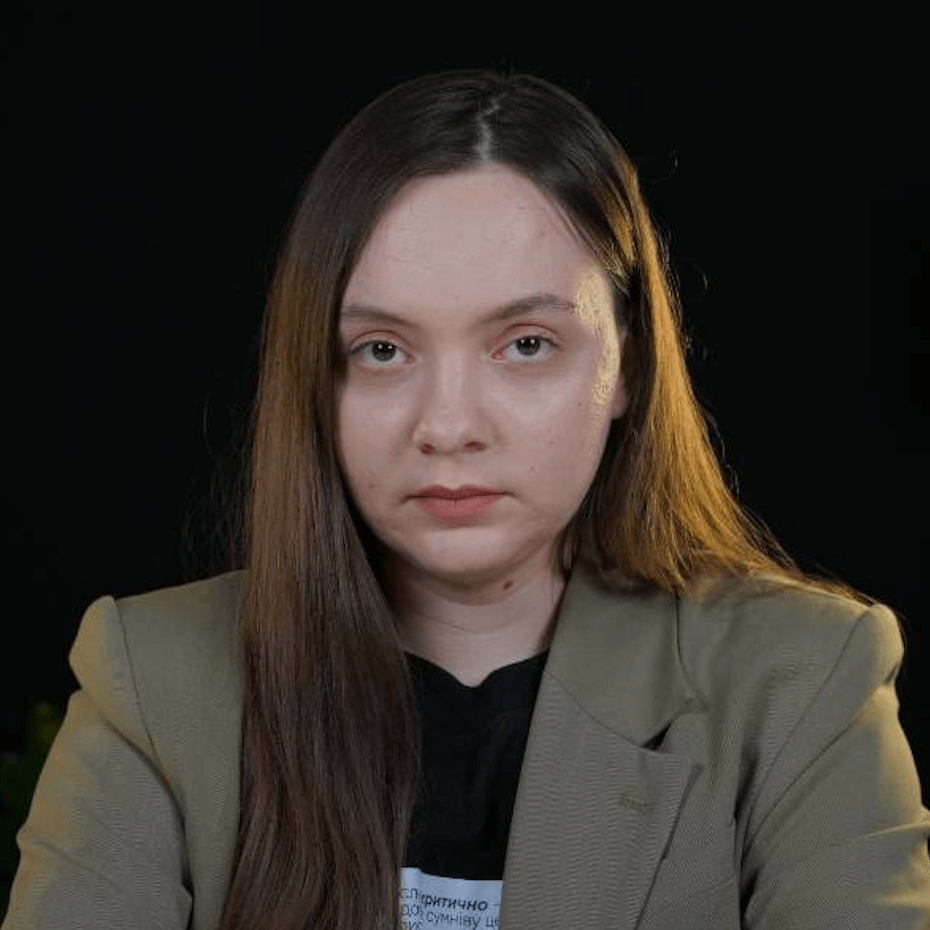Once again, Russians are attempting to provoke panic among Ukrainians by frightening them with messages about the spread of epidemics. This time, it’s cholera once again. Moreover, in the absence of real infection cases, they resort to conspiracy theories. Allegedly, nothing is known about cholera patients because hospitals were ordered to register cholera as botulism. Or, military personnel arrived from the Kharkiv region, and at the same time, cholera-like vibrios were discovered in the water in Kharkiv, so they “brought” cholera to Odesa.
With the support of the USAID Health Reform Support project, VoxCheck analyzes and refutes public health narratives spread in the information space of Ukraine, Belarus, and russia on a weekly basis.
Information is spreading online as if there’s a real cholera epidemic in Odesa. The illness’s spread is being attributed to soldiers from the 41st Separate Motorized Brigade of the Ukrainian Armed Forces who came for treatment in Odesa hospitals. Recently, 150 people have been hospitalized, most of whom are civilians. There are also allegations that doctors are attempting to conceal cases of cholera infection by labeling them as botulism.
What’s the reality?
There is no cholera epidemic in Odesa. This was reported by the Department of Health of the Odesa Regional State Administration. “As of today, there are 35 individuals with symptoms of gastrointestinal dysfunction receiving inpatient care in the infectious disease departments of healthcare institutions in the Odesa region. All patients have been tested for cholera. In the Odesa region, there are no registered cases of individuals with clinical symptoms and laboratory confirmation of cholera! The situation is under control, and the number of cases of gastrointestinal infections is significantly lower than the seasonal average,” explained the Acting Director of the department, Oksana Rokunets-Sorochan. In June, we already refuted fake reports about a cholera epidemic in Kyiv.
Russian propagandists are attempting to use the news of the detection of cholera vibrios in the water in Kharkiv as evidence of the spread of cholera in Odesa. Allegedly, this confirms the fact that Ukrainian military personnel “brought” the infection to Odesa. Such assumptions are entirely baseless. Cholera-like vibrios are not the causative agents of cholera but can cause gastrointestinal infections.
Equally absurd is the claim that hospitals are concealing cases of cholera by registering them as botulism. In fact, at the beginning of August, three residents of the Odesa region were found to have botulism due to the consumption of fish and homemade canned food.
Botulism is a form of food poisoning, primarily caused by consuming products containing botulinum toxins. The causative agent thrives in anaerobic conditions (without oxygen) and can grow under improper storage or transportation conditions. The most common cause of botulism is homemade preserved foods that were prepared or stored with mishandling. Additionally, botulism can result from consuming dried or smoked fish and various meat products (sausages, hams, etc.).
Cholera and botulism are distinct types of acute infectious diseases with different symptoms and treatment protocols. A patient suspected of having botulism is hospitalized, and to counteract the botulinum toxin early, patients are administered antitoxin serum, a product containing antibodies to neutralize the toxin. There is no similar serum for cholera; its treatment involves prescribing antibacterial drugs, probiotics to restore intestinal flora, and intravenous administration of electrolyte solutions or glucose as needed.
Source: Public Health Center
From June to September in Ukraine, the traditional season of intensified epidemiological monitoring for cholera is underway. This is due to the fact that heat and humidity create favorable conditions for the proliferation of the cholera vibrio. As reported by the Ministry of Health of Ukraine, from January to August 2023, a total of 5,123 individuals with acute gastrointestinal infections were tested for cholera, and in all cases, the cholera pathogen was not detected. Disease control and prevention centers also conduct investigations of environmental samples, including monitoring of fresh and sea water. According to the results of examining 5,909 samples, no cholera strains have been detected in any case.
Due to the explosion of the Kakhovka Hydroelectric Power Station by Russia, additional surveillance was implemented in the affected areas. In order to counteract the outbreak of infectious diseases following the catastrophe, 38 water monitoring points were established in the Odesa, Mykolaiv, and Kherson regions. Additionally, in the Zaporizhzhia, Kherson, Odesa, Mykolaiv, and Dnipropetrovsk regions, disease control and prevention centers shifted to a special response mode and formed teams for chemical, radiological, and epidemiological reconnaissance. During this period, 3,334 individuals with acute gastrointestinal infections were examined in the affected areas, and 2,443 environmental samples were tested.
At the level of each region, disease control and prevention centers are implementing measures to prevent the emergence and spread of cholera: comprehensive and operational action plans have been developed, healthcare facilities for the hospitalization of patients suspected of cholera have been identified, operational epidemiological and disinfection teams have been formed, and weekly analysis of the incidence of acute gastrointestinal infections is conducted at the regional level.
This information piece was produced with the assistance of the United States Agency for International Development (USAID), provided on behalf of the people of the United States of America. This article’s content, which does not necessarily reflect the views of USAID, the United States Government, is the sole responsibility of Deloitte Consulting under contract #72012118C00001.
Attention
The author doesn`t work for, consult to, own shares in or receive funding from any company or organization that would benefit from this article, and have no relevant affiliations





